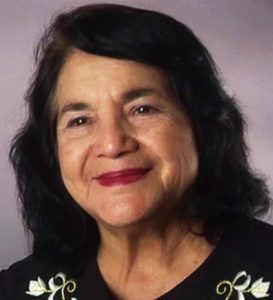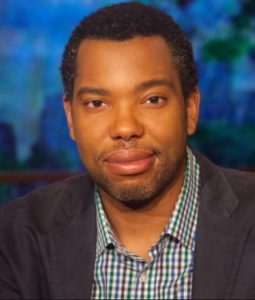Tag Archives: goals
School Lunch
The major downside to being an online instructor is the lack of meaningful interaction. Outside of a few e-mails, I rarely have a conversation with fellow faculty. Most of those are usually related to development of course materials or help with a student or technical issue.
When I taught face to face there was a fellow adjunct, Gary, who was in a similar situation. Twice a week I would walk into the adjunct office to find him sitting there at his laptop, cup of coffee in hand, smiling and commenting on the various comings and goings. Wearing a baseball cap and shorts, he made it clear he was just there to socialize. Looking back, I now understand and appreciate that longing he had to simply associate with a group of peers.
Sadly, I can’t come in a few times a week like he could, but what I can do is stress how important it is to do so if you are able.
Gary and I ended up having lunch a few times and talking about everything ranging from education techniques to our shared interest in writing fiction. I credit him with giving me enough courage to finally self-publish my first short story. Fast forward five years and I now have several short stories published, and am working on putting together a collection. Those lunch time conversations, and Gary’s need to socialize, were the main catalyst for me stretching myself to accomplish more than I would have otherwise done.
You never know how people you meet will influence you, it won’t always be positive, but more often than not in education it will be. Despite having various backgrounds, I find that most educators are open minded and friendly by nature (it is one of those unspoken requirements of staying in the field).
So, as I sign off for the last time this year, I wanted to leave everyone with a message of encouragement. Find a fellow teacher and go have lunch. Talk about ideas, education, hobbies, interests. Appreciate every moment of it, because whether you realize it or not, that ability to connect is not a given, and who knows, it may even help you become a better version of yourself.
Vicariously Dreaming
This week is all about dreams, and I wanted to break away from the abstract big-picture view I normally go with and talk about something personal to me.
Several years ago through the glories of the internet I befriended a young man named Danny who, like me, was passionate about writing. Very quickly I realized he had a gift for wordsmithing, poetry, and editing that all surpassed my own. From that common love we became what would be the digital equivalent of pen pals. We share stories, poems, and ideas, and the edits that ensue always seem to produce much higher quality work for both of us. It remains a symbiosis.
Over the years I started to get to know Danny on a more personal level. Like me, he suffered from asthma but, unlike me, his asthma continued into adulthood and served as a constant source of hospitalization and medical bills. Like me, he has a wonderful sibling who serves as friend as much as kin but, unlike me, whose father is an evangelical minister, politician, and pillar of the community in which he resides, Danny suffered through multiple negative parental figures.
Danny enrolled at the University of Cincinnati, initially pursuing a similar English degree to the one I had pursued during my Bachelor’s. It was at this point that I started to give Danny advice on more than just writing. In him I saw limitless potential and the same drive and passion for writing that I had as an early college student. I was a much wiser man than I was in college and had clear hindsight on all the poor choices I made during my academic career that impacted my professional and personal life down the road. I encouraged him to take advantage of the opportunities that came his way and, although I believe he would have made the same decision in my absence, he eventually became a writer and an editor for Odyssey. With that accomplishment he conquered one of my greatest regrets from my own schooling, failure to have meaningful writing experiences outside the classroom. As he continued to write more insightful articles he built up a portfolio and a reputation for quality that even my current resume would be jealous of.
Even though Danny is only ten years my junior, I began to understand what it was like to have a son to feel pride in someone else’s accomplishments. To see him grow in skill and confidence seemed more rewarding to me than it was to him. Without knowing it, Danny was purging all the demons of my past mistakes through his own achievements. It was a wonderful feeling, but I was unaware Danny was still dealing with his own demons. Thankfully, unlike me, he would face those demons down on his own instead of through someone else.
In 2017, Danny came out to the world in a lovely article. I had known for a short period of time before, but I could tell it was a struggle for him to admit it even to me, the professor who loves to talk about how important it is to appreciate other points of view and will rant for an hour about critical thinking skills.
In 2018, Danny will be receiving the prestigious McKibbin Medal upon graduation and is on the precipice of making some major life decisions, but I can honestly say no matter where his life leads he is already a wiser, stronger man than I could have even dreamed of being at his age. I am truly thankful for the inspiration and confidence he has given me by simply having the courage that he has.
Danny,
Thank you for helping a middle aged professor dream again.
Now go conquer life.
Week 4: The “One Thing,” and How to Influence Assumptions
Welcome back to Week 4 of “The One Thing You can do to Raise Enrollment,” a six week “how-to” series.
Data is a powerful thing: It can confirm our assumptions as well as confound them, as in the story I shared in WEEK 1.
WEEK 2 empowered us upon learning that, when it comes to students choosing YOUR classes (and thus GCC), leaving choice up to chance is not our only option.
In WEEK 3 we covered how reputation is the most important factor in influencing people’s choices, and the importance of making our achievements public to enable people to make informed choices.
This week, let’s talk about your face. 
Face Facts: Numerous published studies provide countless evidence to support the fact that, when viewing a photo of a stranger’s face, it takes us less than a second to formulate an impression .
Assumptions about the character of the person pictured are formed quickly. One Princeton University study published by the Association for Psychological Science is a great example:
“Willis and Todorov conducted separate experiments to study judgments from facial appearance, each focusing on a different trait: attractiveness, likeability, competence, trustworthiness, and aggressiveness.” The results? Of all the traits, trustworthiness was the one participants assessed most quickly.
We cannot escape the fact that photos influence choice, so we will harness this fact and use it to our advantage.
Fear not – the good news is, people want to see trustworthiness and competence in your face, not a glamour shot.
Consider the following photos of these notables: Albert Einstein, Delores Huerta, Ta-Nehisi Coates, Ruth Bader Ginsburg, Conrad Wolfram.
The reasons for not wanting to post a photo:
- I’m not photogenic.
- I don’t like the way I look.
- My face will break the camera.
It’s not about vanity. It’s about character. It’s time to embrace the powerful sway your photo can have upon a stranger’s choice.
The employee bio page is the most underestimated tool available to you. A photo of your face, backed up with a personal quote, your areas of expertise, and a list of your achievements works to establish YOUR personal reputation while raising GCC’s reputation.
 By doing this “One Thing” you enable the public to make an informed decision to choose… you.
By doing this “One Thing” you enable the public to make an informed decision to choose… you.
WEEK 4 Homework: Because you are your own worst critic, your homework is to recruit friends and family to help you sort through photos of yourself to find one that captures the characteristics of trustworthiness and competence. The photo chosen by others just may surprise you.
TIP: The size of the photo on your employee bio page is 280×280 pixels. Make sure the photo your choose is cropped as a perfect square.
For tips on how to choose a photo, read Lydia Abbots’ 5 Tips for Picking the Right LinkedIn Profile Photo.
If you can’t find a photo, a GCC photographer is available.
Come back for WEEK 5: The “One Thing” Before and After
“You’ll never get a second chance to make a great first impression.”
Seeking Time-Turner
A time-turner, for all of you who have not read the Harry Potter book series, is a device that allows the wearer to travel back in time.
 (http://harrypotter.wikia.com/wiki/Time-Turner)
(http://harrypotter.wikia.com/wiki/Time-Turner)
As you can see it is also very fashionable. Hermione used the time turner to attend classes that occurred at the same time during her third year at Hogwarts.
If I had the chance to use a time-turner regularly, like Hermione, I would use it to research more at the community college level. Since completing my Ph. D. last semester I have missed researching classroom interactions. I find that between teaching full-time and being a new mom, I am stretch pretty thin when it comes to time.
I would love to have more time to improve our students mathematics classroom experience through research. I have colleagues in my department with NSF grants that fund their research and I am in awe of them teaching full course loads and conducting research.
This is where the time-turner would come in handy. I would teach my classes but then be able to turn back time and be in my office hard at work creating and implementing a research study of my design. I would also write journal articles that will help spread my findings to the community college and greater mathematics education community.
The benefit would be the chance to help mathematics instructors improve their teaching and in return help students in their mathematics classrooms achieve a better understanding of the concepts.
Since I will have to live without a time-turner for the foreseeable future, I plan to find some stability in my teaching load and work/life balance.
My current goal is to survive this first year as a residential faculty member with an overload and enjoy being a new mom. In the next year, I am planning to join one of the research groups that is already in my department. This will allow me to dip my toe back into the research pool. Eventually, I would like to be the one awarded an NSF grant to conduct research here at GCC.
The Sleeper has Awakened
There are really two kinds of dreams, dreams we have for ourselves (personal goals and desires) and those we have for the world around us. But dreams don’t have to be these surreal or unobtainable goals, no matter how big they are. For those who enjoy viral internet trends, you may have seen a little gem with Shia LeBeouf giving an inspiring “speech” entitled, “Just Do It.” During the motivational and comically energetic rant he utters one very important line, “Don’t let your dreams be dreams.”
[youtube https://www.youtube.com/watch?v=ZXsQAXx_ao0?rel=0]
The dreams we have for ourselves usually involve work or family. On the surface they seem much more obtainable. For example, I often dream of working as full time faculty and finally being able to move on from ten years of working part time at multiple schools. I dream of raising a child with my wife and doing the best I can to provide the same support she has provided me ever since we started dating fifteen years ago. I’d like to think those are obtainable dreams. But dreams don’t come true if you fail to act on them, they require action. My adjunct work at GCC allowed me to start working towards some of my personal dreams. I have been given the opportunity (and even encouraged) to present at meetings, develop curriculum, and even help design entire courses. Those are all very real opportunities that serve as important and needed experience. I may not have reached my dream yet, but those opportunities acted upon are progressive steps.
The dreams we have for the world around us are usually far more reaching, but that doesn’t mean they can’t be acted upon just like personal goals. My far reaching dream would be to live in a world free from prejudice and bias. When I lived in Detroit I was able to see firsthand how horrible and destructive those forces can be. I may just be an adjunct English instructor, but even from that position I can act on my dream to create that better world. By encouraging critical thinking, healthy debate, and empathy in the classroom, slowly but surely, one student at a time, the world becomes a better place through my actions. I can’t have an impact on everyone, but each student I do have a positive influence on creates a ripple, and those ripples may be felt around the world.

So don’t just sit and dream, take action, even a small step. Let the sleeper awaken and watch the world around you slowly change into to the one you imagined and hoped for. Just do it.
Utopian Dreams
A perfect world.
Where everyone is happy, everyone gets along, laughter and smiles abound. Wine and chocolate everywhere.
Alarm clock blares.
Reality check. Life is not and will not ever be perfect. We will get sick or injured, family and friends will come and go, we will run out of money, we will see many failures. And that is okay! So how do we make our lives most effective and efficient despite all of the distractions and barriers to success? How do we achieve the elusive work-life balance that everyone craves?
A long time ago in a professional development workshop, the presenter started with “fill in the blanks…I will be happy when ___________.” So everyone shouted things like degrees, houses, cars, kids, vacations, etc. But those were the wrong answers.
“I am happy now. ” That is the correct answer.
If your happiness is placed somewhere off in the far distant future, then you will never be happy, because you won’t reach it in a single day or week, and once you reach your goal, you will set another distant goal that will send you off into even more discontentedness.
So, if you have a special dream, smile and be excited for the process that will take you there. Be happy now, in your imperfect world, find the joy in little things, and learn to laugh at the obstacles, breathe, expect failure, laugh at that too, and when your dream does come true, you will have learned happiness in the process, intensifying the ecstasy.
I had a dream that this post would be a lot longer and more detailed, filled with inspiration for all. But seriously, who has time for that?!
Dream on…
Yes, we are singing again and again (you probably missed the second one because it is on another blog!).
Dream until your dreams come true…and you get to do some cool things on campus with your colleagues.
Yeah, so that one was a bit off melody! 😉 No disrespect!
I am not going to write about my dreams. Nope. I won’t be writing about lofty dreams of peace, or the elimination of poverty, or even meal times that don’t include my kids complaining about “vegetables again.” I am not going to do that. That discussion is worthwhile, but that is not what Steven is telling me to write about, and right now, I’m listening to Steven.
Dream until your dreams come true. In other words, don’t give up (thanks for that translation, Captain Obvious!). We can talk all day about how cool it would be to have virtual reality glasses in every classroom, or give every new student a brand new laptop when they enroll, or how great it would be if faculty members from all corners of campus regularly attended workshops in the CTLE, but we can’t go that big all the time. Don’t get me wrong, those are fun conversations to have, and sometimes they are useful or necessary; however, they tend to lead no where because often no first step is taken.
Really BIG first steps are scary. So are chocolate covered sardines.

Both happen. We may not know how, and we may not know why, and sometimes we may not like it, but sometimes BIG dreams do come true. And the coolest thing about it is that those big dreams come true the same way those “regular” dreams come true: take the first step. It doesn’t have to be a big step just because it is a big dream, it just has to be a step. We just have to work towards those goals one step at a time; we just have to dream on.






